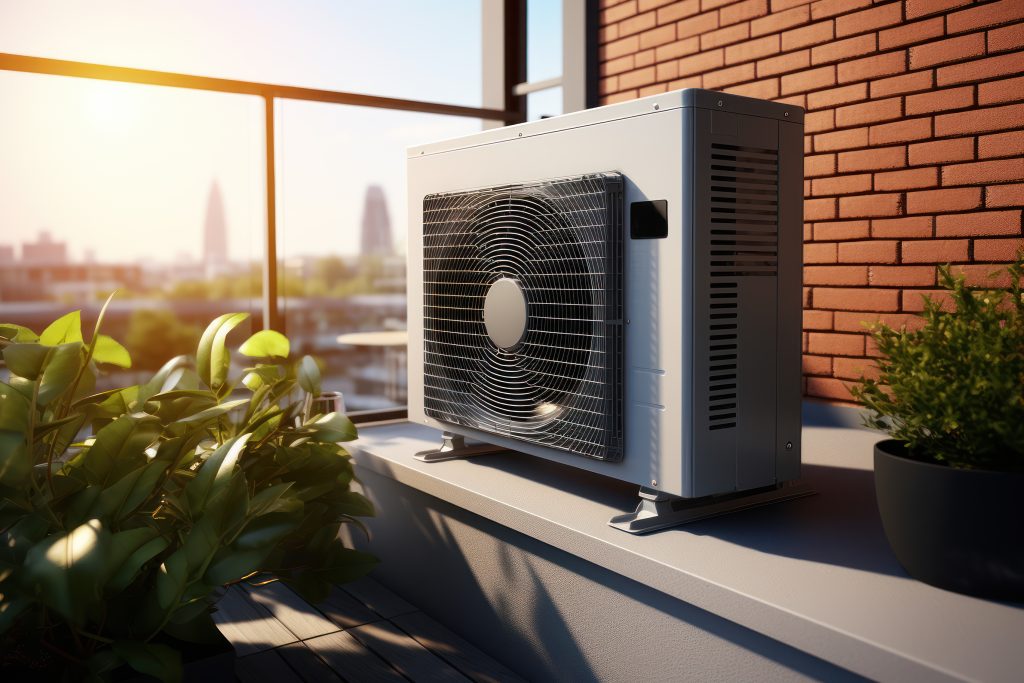Air Source Heat Pumps
Eco Friendly Heating That Saves Energy
Air source heat pumps (ASHPs) are innovative heating and cooling systems that harness the ambient air outside your home to provide efficient temperature control. By transferring heat from the outside air into your home during the winter and reversing the process in the summer, these systems offer a sustainable and cost-effective solution for year-round comfort.
With advancements in technology, modern ASHPs can operate effectively even in colder climates, making them a versatile choice for homeowners looking to reduce their energy consumption and carbon footprint.
Get personalised expert advice from MCS approved air source heat pump
installers in Oxfordshire.

Up To £7.5 k Government Grant Available
Get Personalised Consultation

Getting the Right Heat Pump for Your Property
Every property is different, which requires its own customised solution such as choosing the right type of Air Source Heat Pump, installation location and how it fits into your space. As MCS authorized Heat Pump Installers we’ll guide you every step of the way, from choosing the right model to installing it seamlessly. Book your free consultation to get tailored advice.
Air Source Heat Pumps vs Ground Source Heat Pumps
Air Source Heat Pumps | Ground Source | |
|---|---|---|
Source of Heat | Extracts heat from the air | Uses heat from beneath the earth's surface |
Cost | £7,000 - £11,000 | Over £25,000 |
Installation process | Requires setting up a system akin to an air conditioner on the outside of your property. | Requires digging up your land followed by redoing the landscape after installation is complete. |
Time | Can be installed in just one day | Takes several weeks to install. |
Benefits of Air Source Heat Pumps
Energy Efficiency
Air source heat pumps are known for their exceptional energy efficiency. They can provide up to three times more heating energy than the electrical energy they consume, significantly lowering your energy bills. By utilising renewable energy from the air, ASHPs help you save money while reducing your reliance on fossil fuels.
Environmentally Friendly
Choosing an air source heat pump is a step towards a greener future. These systems produce fewer greenhouse gas emissions compared to traditional heating methods, contributing to a healthier planet. By opting for an ASHP, you are not only enhancing your home’s comfort but also playing a part in combating climate change.
Versatile Applications
Air source heat pumps are suitable for a variety of applications, including residential heating, cooling, and hot water production. Whether you are looking to replace an outdated heating system or install a new one, ASHPs can be tailored to meet your specific needs, ensuring optimal performance and comfort throughout the year.
Low Maintenance
With fewer moving parts than conventional heating systems, air source heat pumps require minimal maintenance. Regular checks and filter changes are typically all that’s needed to keep your system running efficiently, allowing you to enjoy peace of mind and comfort without the hassle of frequent repairs.
Testimonials
What our clients say about us
FAQ
Yes, heat pumps work better when they’re on for longer times at a lower heat. They keep your home warm by adding a little heat continuously, instead of turning off and on. If you turn it off, it uses more energy to warm up again.
No, our heat pumps are very quiet. Our 7400iAW model, for example, is as quiet as a fridge.
No need. When it’s warm, the heat pump knows not to heat your home but keeps making hot water.
Yes, they work even when it’s as cold as -20°C. They’re used in cold places like Scandinavia and keep homes warm all winter.
Yes, they can. Heat pumps are great with underfloor heating because they work best at lower temperatures.
Often, yes. A heat pump can usually be added to what you already have, but sometimes your radiators and pipes might need to be updated to work well with it.
Usually, you don’t. Since December 2011, you can install air source heat pumps in homes without needing special permission, as long as you meet certain rules. But, it’s a good idea to check with your local council, especially if your home is in a protected or historic area.










